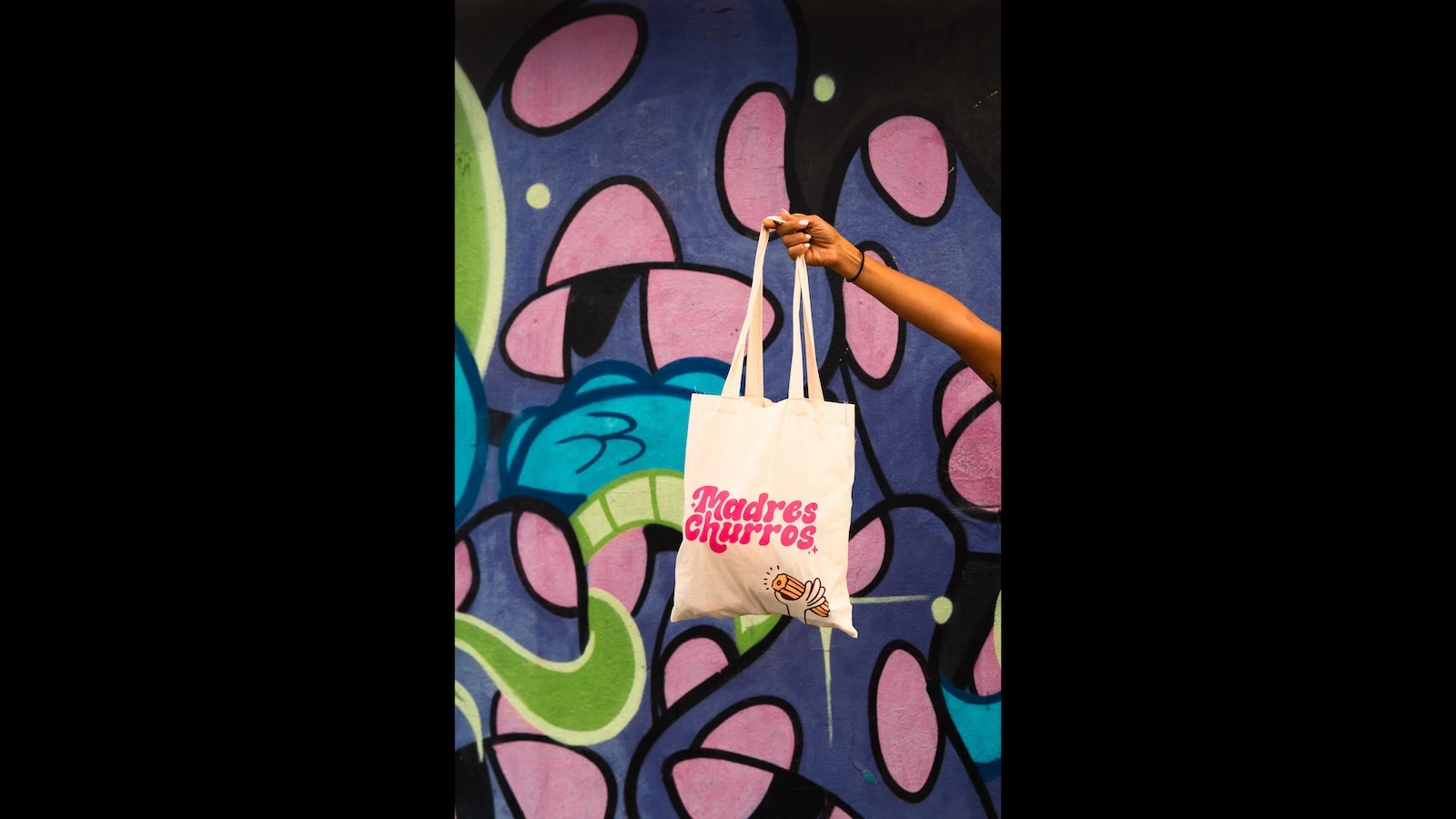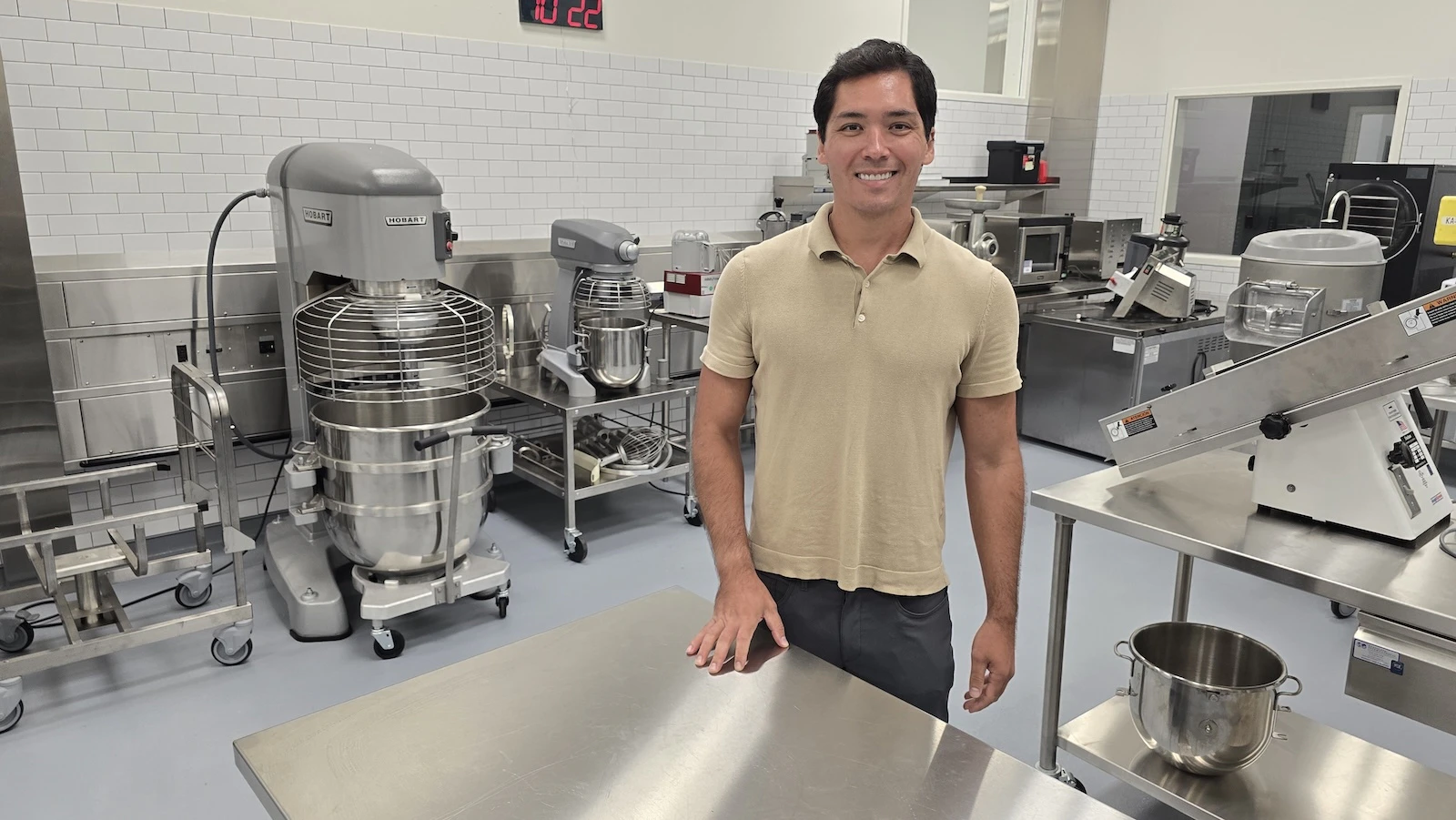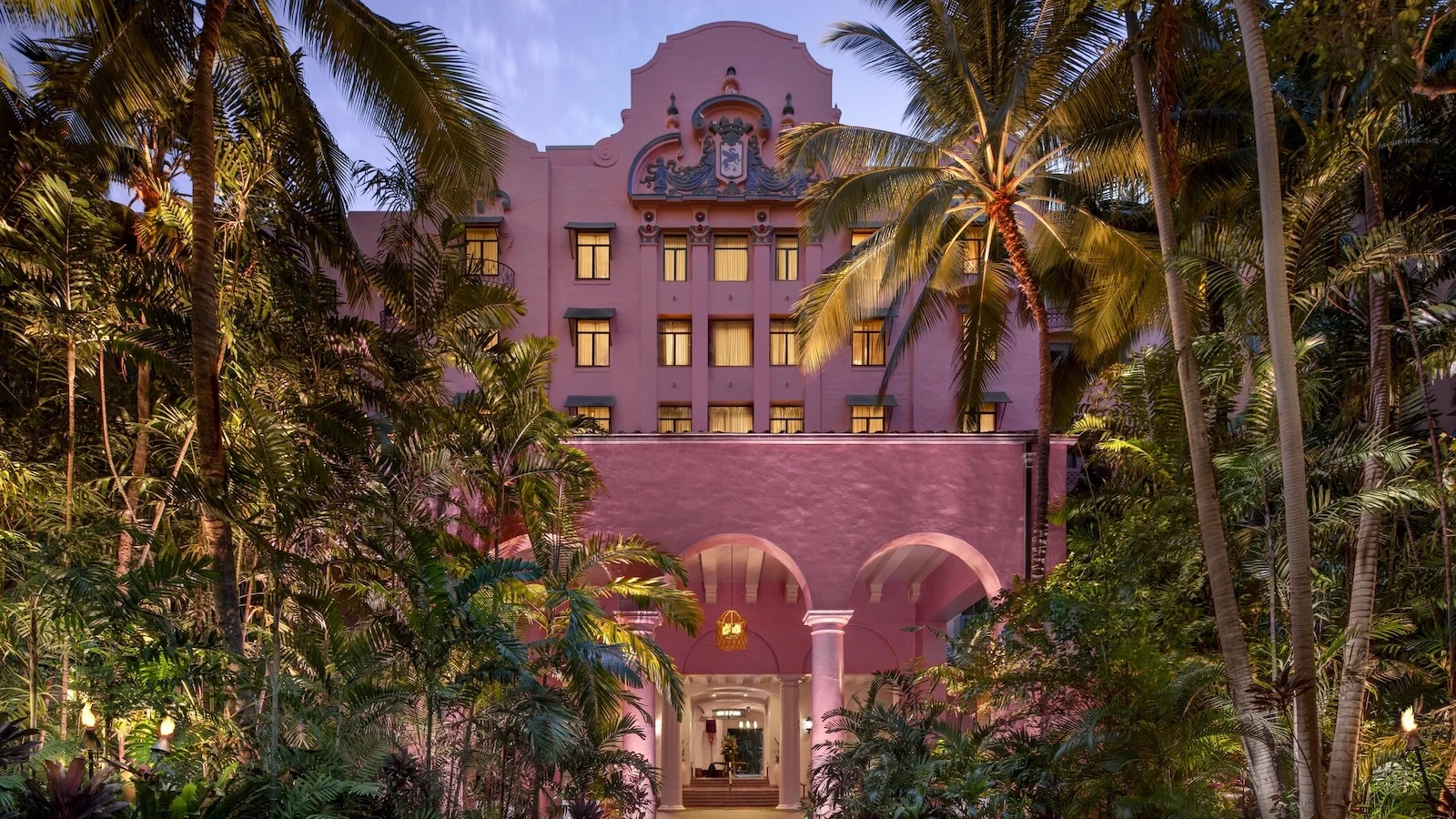For some entrepreneurs looking to expand and grow their small food- or drink-focused businesses, the ‘Āina to Mākeke program has changed the game.
The 12-week program is offered through the Leeward Community College Office of Workforce Development and the Wahiawā Value-Added Product Development Center in collaboration with the Hawai‘i Ag and Culinary Alliance. It aims to help participants scale up their food businesses.
Caleigh Dillon, owner of Waialua-based Pineapple Road Beverage Co., is part of the program's most recent cohort, Cohort 5. Her company brews a non-alcoholic, probiotic cocktail inspired by tepache, a traditional Mexican drink, and made with fermented pineapple and other local produce and botanicals.
She's in the early stages of commercializing the business.
"I think beverages, especially something that's fermented and carbonated and packaged, ready-to-drink, are very challenging, particularly because we have limited infrastructure on island," Dillon, who was raised in Kentucky, told Aloha State Daily during a recent visit to the WVAPDC. "But there are also a lot of people who are really eager to help when they hear that you're trying to make something cool and unique and different out here. This program, the ‘Āina to Mākeke program, has been, honestly, world-changing for me, for the business."
Dillon says it's been helpful to connect with others in the community who are doing similar things and can offer feedback. And the program's instructor, Christiane Bolosan-Yee also has brought in specialists from different areas of food production, branding and packaging.
It's been a lot to cover in just three months, she said, adding that she'll be working on many of the things that have come up during the program for months to come.
"But it's been a really great structure and community to help me make a lot of changes really quickly in the business, and also just feel more connected and more confident in what the next steps are. I think sometimes, as an entrepreneur, that is almost the most daunting thing, where you just feel like you're out in the void and you don't know what the next step is and how to take it. The program has been really helpful in kind of giving me that roadmap."
One of her primary goals in participating was to figure out packaging.
So far, Dillon says she's been selling her beverages from kegs and a tap at pop-ups, but she's often asked where else people can buy it or when it will be available in a four- or six-pack.
She's been struggling to find a packaging solution. A canning line, for instance, she says, is a "really expensive, big piece of equipment" that can be cost prohibitive for those starting out.
"It's been hard to figure out how to break into the packaging space for something that is carbonated and needs to be in a pressurized bottle or can," Dillion explained. "That was the first thing that I came into the program really wanting to find a solution for and our solution, for now, is glass bottles, which I'm actually really thrilled about. The glass is expensive, but the process of filling and capping them is a lot easier and a lot more low-tech, so it's something that I think is accessible to me as I'm starting out and growing to a mid-tier level until you can to the place where you can afford larger industrial equipment."
She's also recently finished a rebrand, something she came into the program thinking about.
Janee Gutierrez, founder of Madres Churros, is another member of Cohort 5. The company offers gluten-free and vegan churros, including ones made using locally sourced poi, and is working to develop a frozen packaged line of churros.
She learned about the program while touring the WVAPDC last July.
"It was so new — they were still unpacking mixers and supplies," she told ASD in an email. "I saw a flyer for the program at the front desk and asked when applications would open. I already knew I wanted to package my churros and get them into grocery stores."
A second-generation Mexican American, Gutierrez told ASD that she was raised in San Diego, but spent weekends in Los Angeles where her grandma and parents ran a mariscos food truck — her first experience in entrepreneurship.

Madres Churros began as Madre Churros and Cacao in San Diego in 2019.
Gutierrez says she served vegan churros with chocolate made from cacao nibs from a small farm in Mexico, but two months into the endeavor she was diagnosed with a gluten intolerance that prompted her to create a gluten-free and vegan recipe.
"We were gaining momentum at local farmers markets and started booking catering gigs, when the [Covid-19] pandemic forced us to shut down," she continued. "During that time, I visited O‘ahu to see my mom and something, maybe my intuition, told me to stay. It was strange because I always knew I was going to live here, I just knew it wasn't my time yet."
Within six months, though, Gutierrez moved to the island and worked in the restaurant industry until last April.
In September 2024, she rebranded and opened Madres Churros and has since worked with local businesses and introduced a new recipe using locally sourced poi.
She began doing pop-ups, but while working at the Lonohana tasting room in Kaka‘ako, Gutierrez met another entrepreneur who participated in the program.
"I asked him if the program was worth it for someone wanting to create a [consumer-packaged goods] product, and he said yes — then connected me with my now-teacher, Christiane," she said. "I'm super grateful I got in. It really feels like I'm finally moving closer to my dream I've had for Madres!"
For Gutierrez, the ‘Āina to Mākeke program has been a "game changer."
"Since I had the dream of packaging my churros, I didn't know where to start and would get overwhelmed with the idea. The program helped break it all down — costing, marketing, packaging, branding."
But the community created by the program has been just as important, Gutierrez says.
"Being part of a cohort with other small business owners who are also figuring things out has been so encouraging," she told ASD. "We all support each other, share ideas and celebrate the wins together. It doesn't feel like I'm doing this alone — at times I would feel alone."
The team at the facility has been "incredible," too, she says.
"Everyone’s been so supportive and genuinely wants to see us succeed. It’s given me the confidence, tools, and resources to take Madres from a pop-up to a product I can actually imagine on grocery store shelves. I finally feel like this dream is becoming real."
Gutierrez believes that programs like ‘Āina to Mākeke give small businesses in Hawai‘i "a shot at growing in a sustainable way on the island."
It breaks concepts down and "makes it feel way more doable."
"It can be tough to figure out how to scale, especially when it comes to sourcing equipment, navigating packaging rules, sourcing ingredients or just knowing where to start," she says. "Even though I'm not at the stage yet where I need big machines, it's nice to know there's a place I can go when I'm ready to take that step."
Cohort 5culminates this week with a showcase from 5 to 7 p.m. Wednesday, April 30, at the Wahiawā Value-Added Product Development Center, 1001 California Ave. The free event is open to the public and will include free samples from the 15 businesses in the cohort as well as refreshments from previous participants and more. RSVP by emailing VAPDC@hawaii.edu.
Chris Bailey, manager of the WVAPDC, said the ‘Āina to Mākeke program did two cohorts of 15 in both 2023 and 2024, and will do a total of three cohorts this year. Cohort 6 will be announced in early May while the third cohort will be offered around the fall.

Dillon encourages anyone with an idea, "if you've got some little thing that's kind of tickling at your mind," to visit the WVAPDC.
"You see all the possibilities. It kind of is inspiring. It gives you ideas, then knowing that this framework is here, I think it also makes the idea of giving it a shot less daunting because there is a place that has the equipment to help you and the people to help you."
WVAPDC, which opened just over a year ago, is a 33,000-square-foot food manufacturing facility that aims to aid in the growth of the state's agricultural industry and entrepreneurial community through educational programs; offering more opportunities for local growers to sell their products to value-added producers; and offering local entrepreneurs to access to "small business resources, production kitchens and in-house product and process development," its website notes.
WVAPDC itself is a project of LCC and the state, built at a cost of $21.6 million, according to other news outlets.
Bailey said the facility includes about 12,000 square feet of production floor space. About 10 businesses have been onboarded to use the facility and another 40 in the queue, a number of which are coming from ‘Āina to Mākeke, he said.
According to a recent announcement, since opening last April, the facility has served more than 1,000 entrepreneurs, farmers and students.
"We're committed to launching and growing the next waves of iconic Hawaii food and beverage brands, again using local ag as a means to support our farming industry going to the future," Bailey said.
Contact
Pineapple Road Beverage Co. is currently on tap at Jorge's Mexican Restaurant and Bar in Haleiwa and will have a tap truck debut at the Haleiwa Arts Festival in June. The company can be found on Instagram at @drinkpineappleroad.
Madres Churros offers catering and is expanding to wholesale. Email aloha@madreschurros.com for more info. The company can also be found on Instagram at @madreschurros.
Stephanie Salmons can be reached at stephanie@alohastatedaily.com.





